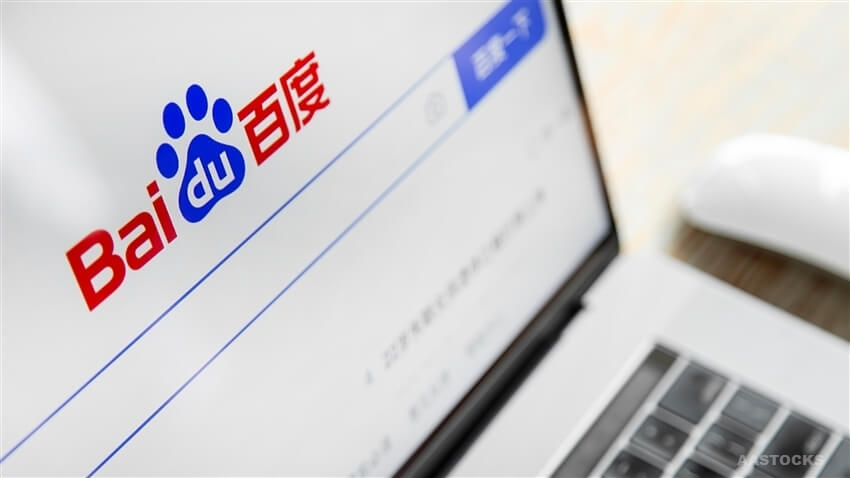Baidu’s Bold AI Search Engine Upgrade: A New Era for China’s Internet?
Chinese tech giant Baidu, often dubbed “China’s Google,” has launched its most significant search engine upgrade in years, betting on artificial intelligence (AI) to reclaim its slipping dominance in the country’s fiercely competitive digital landscape. The overhaul, announced in July 2025, introduces a smarter, more conversational search experience, aiming to transform Baidu from a traditional search engine into a true AI assistant. This move comes as Baidu faces mounting pressure from social media platforms and rival search engines, all vying for the attention of China’s 1.1 billion internet users.
- Baidu’s Bold AI Search Engine Upgrade: A New Era for China’s Internet?
- What’s New in Baidu’s AI Search Engine?
- Why Is Baidu Making This Move Now?
- Inside Baidu’s AI Technology: The Ernie Model and Beyond
- How Does Baidu’s AI Search Compare to Global Rivals?
- Monetization and Business Model: Can Baidu Profit from AI Search?
- Challenges: Walled Gardens, User Trust, and the Future of Search
- Investor and Market Reaction: A Mixed Outlook
- Broader Implications: The Future of Search in China and Beyond
- In Summary
At the heart of Baidu’s strategy is the integration of advanced AI models—most notably, the Ernie series—directly into its core search product. The company promises more accurate, context-aware answers, personalized recommendations, and a seamless blend of text, video, and voice search. But can these innovations help Baidu reverse its declining market share and lead the next wave of AI-driven search?
What’s New in Baidu’s AI Search Engine?
Baidu’s revamped search engine is designed to understand natural language queries, even those exceeding 1,000 words and containing multiple parts. Users can now ask complex questions in everyday language, such as “What are the best smartphones under 2,000 yuan for photography, and which ones are suitable as gifts?” Instead of returning a list of links, Baidu’s AI can generate tailored recommendations, organize products by price, and surface relevant videos and blog analyses.
The upgrade also introduces a larger, smarter search box and a powerful voice function, supporting searches in several Chinese dialects. Baidu’s mobile app is evolving into an AI chatbot capable of assisting with writing, drawing, trip planning, and more. The company’s goal is to anticipate user needs, providing not just direct answers but also visualizations—such as GDP graphs for economic queries—and deeper insights from trusted bloggers and experts.
According to Zhao Shiqi, Baidu’s general manager for search, the company’s AI features are fully integrated into the main search page, unlike Google’s separate “AI Mode.” Zhao emphasized Baidu’s urgency to innovate:
“Baidu search has to change, and we are voluntarily looking for changes. We don’t intend to beat others, we need to beat our former self.”
Why Is Baidu Making This Move Now?
Baidu’s dominance in China’s search market has been steadily eroded by the rise of “walled garden” platforms like Douyin (China’s TikTok), Xiaohongshu (Little Red Book), and WeChat. These apps have become the go-to destinations for content discovery, product recommendations, and even search, especially among younger users. As a result, Baidu’s market share has dropped from around 65% in 2020 to just over 50% in mid-2025, according to multiple industry trackers.
Recent data from StatCounter and The Egg show Baidu holding between 50% and 54% of the Chinese search market, with Microsoft’s Bing surging to over 24%—a remarkable rise fueled by Bing’s own AI-powered features. On desktop, Bing now rivals Baidu, while Baidu maintains a stronger lead on mobile devices. Other competitors like Haosou and Yandex are also gaining ground.
This competitive pressure, combined with declining online advertising revenue (down for four consecutive quarters), has forced Baidu to accelerate its AI transformation. The company is not just fighting for users—it’s fighting for relevance in a rapidly changing digital ecosystem.
Inside Baidu’s AI Technology: The Ernie Model and Beyond
Central to Baidu’s AI push is the Ernie (Enhanced Representation through kNowledge Integration) family of large language models. The latest iterations—Ernie 4.5 Turbo and Ernie X1 Turbo—are touted as faster, more affordable, and more capable than previous versions. Baidu claims the X1 Turbo matches the performance of leading open-source models like DeepSeek R1 at half the price, with advanced reasoning and planning abilities.
These models power not only Baidu’s search engine but also a growing ecosystem of AI applications, from document creation tools (Wenku) to autonomous driving (Apollo Project) and cloud computing. Baidu’s AI is now responsible for generating around 11% of core search results, a figure expected to rise as the technology matures.
In a significant strategic shift, Baidu announced it would make its next-generation Ernie models open-source from June 30, 2025. This move is designed to accelerate AI adoption, attract developers, and position Baidu’s technology as an industry standard. CEO Robin Li explained the rationale:
“If you open things up, a lot of people will be curious enough to try it. This will help spread the technology much faster.”
How Does Baidu’s AI Search Compare to Global Rivals?
Baidu’s overhaul mirrors a global trend: search engines everywhere are racing to integrate generative AI and large language models. Google’s Gemini-powered “AI Mode,” Microsoft Bing’s AI Q&A features, and Yandex’s YATI and Neuro models are all reshaping how users interact with search.
However, Baidu faces unique challenges. Unlike Google, which dominates globally, Baidu operates in a fragmented Chinese internet where much valuable content is locked inside rival platforms. Assistant Professor Fang Kecheng of the Chinese University of Hong Kong notes that Baidu’s search results have not always improved, partly because the company prioritizes its own content platforms (like Baijiahao and Baidu Baike) over directing users to the most relevant external sites. This “self-referential” approach, while keeping users within Baidu’s ecosystem, can limit the breadth and quality of search results.
Meanwhile, Bing’s rapid market share gains in China are attributed to its more diverse, responsive search results and aggressive adoption of AI features. On desktop, Bing now matches or exceeds Baidu’s share, and its mobile presence is growing fast. For international brands and users, Bing’s familiarity and openness to global content make it an attractive alternative.
Monetization and Business Model: Can Baidu Profit from AI Search?
While Baidu’s AI upgrades are technologically impressive, the company faces a critical question: how to monetize these new capabilities? Traditionally, Baidu’s revenue has relied heavily on online advertising linked to search queries. As AI-generated answers replace traditional link lists, the challenge is to integrate advertising in a way that feels natural and valuable to users.
Baidu is experimenting with more “native” ad formats within AI-generated content, similar to how American startup Perplexity runs a subscription-based AI search engine. However, the Chinese market is highly price-sensitive, and Baidu recently made its latest Ernie models free for individual users, abandoning earlier subscription fees. The company is also exploring partnerships, cloud services, and AI-powered marketing tools as new revenue streams.
According to Seeking Alpha, Baidu’s AI Cloud and Intelligent Driving businesses, along with the Ernie bot, are poised for monetization and could drive future growth. Despite a projected revenue contraction in 2024, analysts see Baidu’s strategic focus on AI as a strong catalyst for long-term value—if the company can successfully convert user engagement into profits.
Challenges: Walled Gardens, User Trust, and the Future of Search
Baidu’s transformation is not without obstacles. Much of China’s most useful online information is trapped within “walled gardens” like Douyin, Xiaohongshu, and WeChat, which restrict external search engines from indexing their content. This fragmentation makes it difficult for Baidu to provide truly comprehensive answers, especially as users increasingly turn to these platforms for product reviews, travel tips, and lifestyle content.
There is also skepticism about Baidu’s approach to search. Critics like Professor Fang argue that Baidu’s focus on keeping users within its own ecosystem—surfacing content from Baijiahao and other Baidu properties—can undermine the objectivity and usefulness of search results. This tension between being a gateway to the web and a destination in itself is at the heart of Baidu’s identity crisis.
Moreover, as AI-generated content becomes more prevalent, issues of accuracy, bias, and transparency come to the fore. Baidu must ensure that its AI models provide reliable, up-to-date information and that advertising does not compromise user trust.
Investor and Market Reaction: A Mixed Outlook
Investors have responded positively to Baidu’s recent AI announcements, with the company’s shares jumping over 10% following the release of new free-to-use AI models. The open-sourcing of Ernie and aggressive price cuts for AI services have been seen as bold moves to regain market share and influence in the AI community.
However, the competitive landscape remains intense. ByteDance’s Doubao chatbot, DeepSeek’s open-source models, and Alibaba’s Qwen are all gaining traction, with some surpassing Baidu’s Ernie Bot in user numbers. Baidu’s ability to deliver on its promises—both in terms of AI performance and business results—will determine whether it can reclaim its leadership position.
As one analyst put it,
“Baidu’s competitiveness hinges on whether its new models truly deliver on the promised performance and cost advantages.”
Broader Implications: The Future of Search in China and Beyond
Baidu’s AI-powered overhaul is more than a technical upgrade—it’s a test case for the future of search in a world where information is fragmented, user expectations are rising, and AI is reshaping every aspect of digital life. The outcome will have implications not just for Baidu, but for the entire Chinese internet and the global search industry.
If Baidu succeeds, it could set a new standard for AI-driven search, blending conversational interfaces, multimedia content, and personalized recommendations. If it falters, the door is open for rivals—both domestic and international—to capture the next generation of Chinese internet users.
In Summary
- Baidu has launched a major AI-driven upgrade to its search engine, aiming to provide more accurate, conversational, and useful answers.
- The company’s market share has declined from 65% in 2020 to just over 50% in 2025, as competition from social apps and rival search engines intensifies.
- Baidu’s new features include natural language queries, voice search in multiple dialects, and integration of advanced Ernie AI models.
- The company is shifting to an open-source strategy for its AI models and making them free for individual users to accelerate adoption.
- Monetizing AI-powered search remains a challenge, with Baidu exploring native advertising, cloud services, and partnerships.
- Critics argue that Baidu’s focus on its own content platforms may limit the objectivity and usefulness of search results.
- The outcome of Baidu’s AI transformation will shape the future of search in China and influence global trends in AI-powered information discovery.












